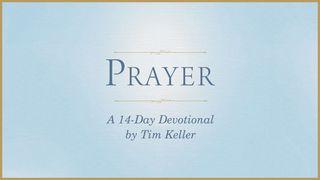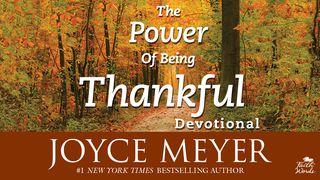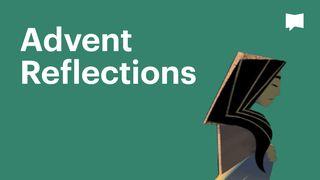Lent For EveryoneSample

WEEK 2: WEDNESDAY
Jesus is here being put on the spot. Today, when interviewers try to force politicians to say things they didn't really want to let out, they tend to prevaricate, to ignore the question, or even to tell downright lies. We have print and electronic media that can take any sentence uttered by a public figure and beam it round the globe in an instant. In Jesus' day they had some- thing almost as powerful, and just as deadly: the rumour mill. Anything you said in one village might precede you to the next. Anything someone like Jesus said about kingship, about God's new purposes coming to pass, might easily land on the desk of the present would-be king of the Jews, Herod Antipas. So, when the awkward question comes, he has truthful but elusive answers ready.
The question was asked by John the Baptist, who was in prison after annoying Herod with his preaching. (John had been saying, among other things, that Herod should not have taken his brother's wife. Accusing someone of blatant immorality was certainly to be taken as a political comment: such a person could hardly be the true king of the Jews. No wonder Herod was annoyed.) But John had pointed to Jesus himself, and had declared that he was God's chosen one, the coming Messiah. Jesus, in other words, was the reality, and Herod just a cheap imitation. Now Jesus had been healing people, announcing that God was becoming king — but he hadn't marched on Jerusalem, he hadn't launched an attack on Herod, the present wicked usurper. What's more, he hadn't rescued his own poor cousin from Herod's clutches. So: 'Are you the one who is to come, or should we be looking for someone else?' It's the natural question.
But Jesus cannot simply give it the natural answer. To say 'yes' is to send a message directly to Herod via the rumour mill: You, Herod, are supposed to be 'king of the Jews', but now there's someone else going around saying it's him instead. Not the sort of thing a king likes to hear. So Jesus speaks instead in biblical terms. The great prophets, notably Isaiah 35, had predicted a coming time of blessing and healing for God's people. This is coming true in his own work. 'Blessed is the one who takes no offence at me,' he says: in other words, this is what the Messiah is supposed to look like, and if you were expecting something else it's you that needs to adjust your picture!
But then Jesus makes two other points, more cryptic still. First, he asks the crowds why they came out into the wilderness — already knowing the answer, that they came to see John. What were they looking for? A reed shaken in the wind? They would all know that this referred to Herod Antipas, who had a Galilean reed as the emblem on his coins. Or someone clothed in silks and satins? No: you'd had enough of would-be kings, jumped-up little princelings copying the worst habits of Rome and its emperors. This was indeed subversive stuff, but Jesus hasn't said anything that would enable Herod to arrest him too.
But then comes a still more cryptic, powerful saying. The crowds had come to see 'a prophet, and more than a prophet'. Jesus has worked the conversation round. John the Baptist is the greatest man who ever lived; 'yet the least in the kingdom of heaven is greater than he . . . and he is Elijah who is to come.' No wonder he had to say, after that, 'If you've got ears, then listen!' He was speaking in riddles. If John is the greatest man ever, but since then something new has happened which introduces a whole new value-scale, then it can only be that the 'new' thing that has happened is Jesus' own presence, Jesus' own work. If John is Elijah, Jesus is the one whom Elijah was going to announce as imminent . . . which makes him at least Israel's Messiah. Perhaps even the living embodiment of Israel's returning, judging God.
When Jesus says that the kingdom has been breaking in violently, and that violent people are trying to snatch it, what he seems to be saying is that God's kingdom had indeed been decisively launched in his work, and that those bent on violent revolution were trying to get in on the act. That would of course provoke Herod all the more, and indeed — as happens sometimes in our own world — someone who is determinedly pursuing an agenda of violence will not welcome the news of God's kingdom of peace and healing.
The crowds, meanwhile, just don't get it. John looked too crazy, Jesus looks too normal. Sometimes even Jesus just had to plough on, realizing that people hadn't understood, but going ahead anyway. Sometimes we have to do the same.
TODAY
Lord, give us grace to recognize you, to hail you as our Lord and King, and to follow you even when we too are misunderstood.
Jesus is here being put on the spot. Today, when interviewers try to force politicians to say things they didn't really want to let out, they tend to prevaricate, to ignore the question, or even to tell downright lies. We have print and electronic media that can take any sentence uttered by a public figure and beam it round the globe in an instant. In Jesus' day they had some- thing almost as powerful, and just as deadly: the rumour mill. Anything you said in one village might precede you to the next. Anything someone like Jesus said about kingship, about God's new purposes coming to pass, might easily land on the desk of the present would-be king of the Jews, Herod Antipas. So, when the awkward question comes, he has truthful but elusive answers ready.
The question was asked by John the Baptist, who was in prison after annoying Herod with his preaching. (John had been saying, among other things, that Herod should not have taken his brother's wife. Accusing someone of blatant immorality was certainly to be taken as a political comment: such a person could hardly be the true king of the Jews. No wonder Herod was annoyed.) But John had pointed to Jesus himself, and had declared that he was God's chosen one, the coming Messiah. Jesus, in other words, was the reality, and Herod just a cheap imitation. Now Jesus had been healing people, announcing that God was becoming king — but he hadn't marched on Jerusalem, he hadn't launched an attack on Herod, the present wicked usurper. What's more, he hadn't rescued his own poor cousin from Herod's clutches. So: 'Are you the one who is to come, or should we be looking for someone else?' It's the natural question.
But Jesus cannot simply give it the natural answer. To say 'yes' is to send a message directly to Herod via the rumour mill: You, Herod, are supposed to be 'king of the Jews', but now there's someone else going around saying it's him instead. Not the sort of thing a king likes to hear. So Jesus speaks instead in biblical terms. The great prophets, notably Isaiah 35, had predicted a coming time of blessing and healing for God's people. This is coming true in his own work. 'Blessed is the one who takes no offence at me,' he says: in other words, this is what the Messiah is supposed to look like, and if you were expecting something else it's you that needs to adjust your picture!
But then Jesus makes two other points, more cryptic still. First, he asks the crowds why they came out into the wilderness — already knowing the answer, that they came to see John. What were they looking for? A reed shaken in the wind? They would all know that this referred to Herod Antipas, who had a Galilean reed as the emblem on his coins. Or someone clothed in silks and satins? No: you'd had enough of would-be kings, jumped-up little princelings copying the worst habits of Rome and its emperors. This was indeed subversive stuff, but Jesus hasn't said anything that would enable Herod to arrest him too.
But then comes a still more cryptic, powerful saying. The crowds had come to see 'a prophet, and more than a prophet'. Jesus has worked the conversation round. John the Baptist is the greatest man who ever lived; 'yet the least in the kingdom of heaven is greater than he . . . and he is Elijah who is to come.' No wonder he had to say, after that, 'If you've got ears, then listen!' He was speaking in riddles. If John is the greatest man ever, but since then something new has happened which introduces a whole new value-scale, then it can only be that the 'new' thing that has happened is Jesus' own presence, Jesus' own work. If John is Elijah, Jesus is the one whom Elijah was going to announce as imminent . . . which makes him at least Israel's Messiah. Perhaps even the living embodiment of Israel's returning, judging God.
When Jesus says that the kingdom has been breaking in violently, and that violent people are trying to snatch it, what he seems to be saying is that God's kingdom had indeed been decisively launched in his work, and that those bent on violent revolution were trying to get in on the act. That would of course provoke Herod all the more, and indeed — as happens sometimes in our own world — someone who is determinedly pursuing an agenda of violence will not welcome the news of God's kingdom of peace and healing.
The crowds, meanwhile, just don't get it. John looked too crazy, Jesus looks too normal. Sometimes even Jesus just had to plough on, realizing that people hadn't understood, but going ahead anyway. Sometimes we have to do the same.
TODAY
Lord, give us grace to recognize you, to hail you as our Lord and King, and to follow you even when we too are misunderstood.
Scripture
About this Plan

Lent for Everyone is a devotional created and written by N.T. (Tom) Wright. For each day of Lent, there is a reading chosen from the Gospel of Matthew, plus a reflection by Wright. These readings have grown out of a project encouraging Lent reading in Northern England. This is the second in a three-volume series based on the Revised Common Lectionary of the Church of England.
More
We would like to thank SPCK Publishing for providing Lent for Everyone by Tom Wright. For more information, please visit their site: http://www.spckpublishing.co.uk/shop/lent-for-everyone-matthew/
Related Plans

Journeying With Jesus - 40 Days Lent Devotional

My Utmost for His Highest - Holy Week

Prayer: A 14-Day Devotional by Tim Keller

The Power Of Being Thankful

My Utmost For His Highest

The Greatest Gift

Joyce Meyer: Promises for Your Everyday Life - a Daily Devotional

BibleProject | Advent Reflections

Advent: The Journey to Christmas
